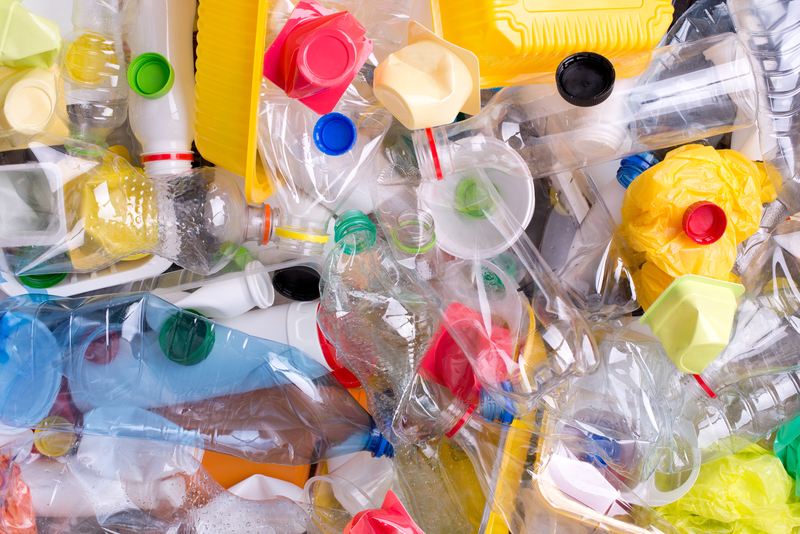Environmental deterioration is a pressing issue that has been exacerbated by the alarming increase in mismanaged waste. In this article, we'll delve into how unregulated waste management practices contribute to environmental decline, the various types of waste involved, and potential solutions to mitigate these impacts.
The Pervasive Problem of Mismanaged Waste
Mismanaged waste is any waste that is not handled appropriately within a structured waste management system. This includes waste that is illegally dumped, inadequately processed, or improperly recycled, often leading to significant environmental degradation.

The Types of Mismanaged Waste
- Plastic waste: Plastic waste is among the most destructive to the environment due to its non-biodegradable nature. Mismanagement leads to severe pollution in both terrestrial and marine habitats.
- Electronic waste (e-waste): E-waste contains toxic substances that can leach into the environment, causing contamination of soil and water if not correctly disposed of.
- Hazardous waste: Often found in industrial and chemical sectors, hazardous waste contains dangerous substances that pose a threat to human health and ecosystems.
- Organic waste: While biodegradable, organic waste can contribute to methane emissions if not managed effectively, exacerbating global warming.
Environmental Impacts of Mismanaged Waste
The effects of poorly managed waste are wide-ranging and severely impact ecosystems and human health. Below, we explore some of the significant environmental consequences of this global issue.
Soil Contamination
Soil is an essential resource for agriculture and ecosystems. Mismanaged waste, especially e-waste and hazardous waste, can result in toxic chemicals leaching into the soil, contaminating it and reducing its fertility. This affects plant growth and can lead to food insecurity.
Water Pollution
One of the most pressing issues is water pollution. Plastic debris, toxic materials from e-waste, and other waste forms find their way into rivers, lakes, and oceans, severely affecting aquatic life. Furthermore, contaminated water is unsafe for human consumption and can lead to health problems.
Air Pollution
Burning waste releases harmful pollutants into the air, contributing to air quality deterioration. This includes emissions like carbon dioxide (CO2) and methane, potent greenhouse gases that drive climate change. Poor air quality can also cause respiratory issues in humans and animals.
Loss of Biodiversity
Mismanaged waste can lead to habitat destruction, impacting countless species. Animals may ingest plastic debris or become entangled, leading to injury or death. Additionally, toxic substances from other waste streams can alter ecosystems, driving species to extinction.
Addressing the Challenge of Mismanaged Waste
Tackling the issue of mismanaged waste requires a comprehensive approach involving governments, industries, and individuals. Effective waste management practices can significantly mitigate environmental deterioration. Here are some strategies to consider:
Improved Waste Management Systems
Many municipalities are investing in robust waste management systems to ensure proper collection, segregation, and disposal of waste materials. Enhanced infrastructure can reduce illegal dumping and encourage recycling practices.
Recycling and Circular Economy
Recycling is a cornerstone of effective waste management. By adopting a circular economy, where waste is viewed as a resource, materials can be reused and recycled, minimizing environmental impact. Governments and industries must promote recycling programs and develop new markets for recycled goods.
Policy and Regulation
Governments play a crucial role in regulating waste management. Stringent environmental laws and policies can discourage improper disposal practices and mandate responsible waste handling in industries.
Public Awareness and Education
Educating the public about the adverse effects of mismanaged waste and promoting sustainable practices can drive community-led initiatives. Increasing awareness about waste reduction and responsible disposal practices can foster behavioral change.
Technological Innovations
Technological advancements can revolutionize waste management. Innovations such as waste-sorting robots, biodegradable plastics, and advanced recycling techniques offer promising solutions for reducing environmental harm.

The Role of Individuals in Mitigating Environmental Deterioration
Every individual has a role to play in combating this issue. Simple actions like reducing personal waste, participating in local clean-up activities, and supporting eco-friendly products can cumulatively make a significant difference.
Moreover, individuals can advocate for better waste management practices in their communities and hold businesses accountable for their environmental impact.
Conclusion
Environmental deterioration due to mismanaged waste is a critical issue that demands urgent action. By understanding the impacts and embracing sustainable waste management practices, we can move towards a healthier, more sustainable future. Through collective efforts at the governmental, industrial, and individual levels, we can mitigate the adverse effects of waste mismanagement and safeguard our planet for future generations.